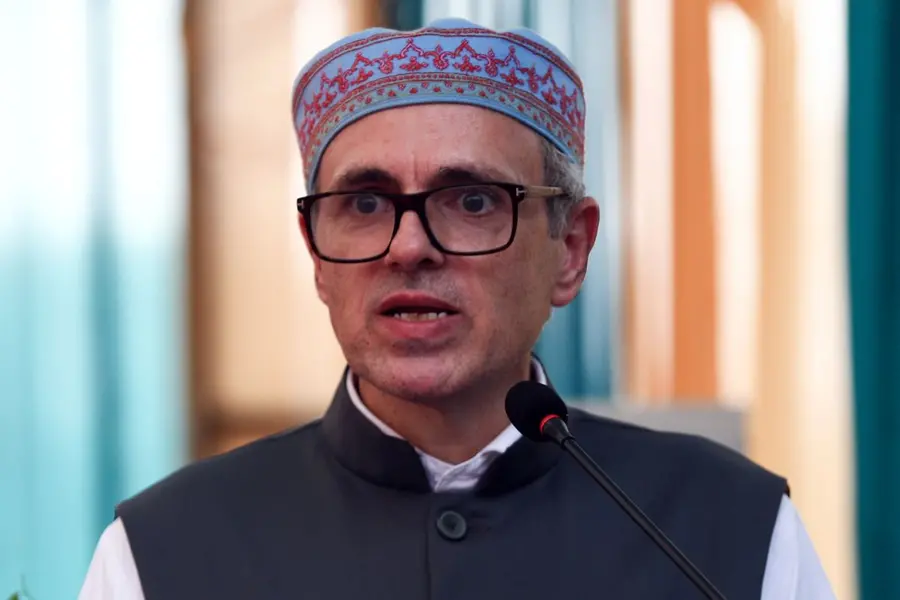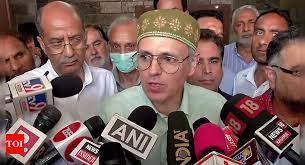Op-Ed | Kashmir Cannot Afford Another Cycle of Collective Punishment
Javid Amin | Srinagar | November 13, 2025
“Stop Treating All Kashmiris as Suspects”: Omar Abdullah’s Warning Carries a Deeper Truth
The aftermath of the recent Delhi blast has once again pushed Kashmir into a familiar and deeply unsettling script: mass detentions, sweeping raids, and a presumption of guilt cast over an entire population. More than 600 detentions and 500-plus searches later, the question confronting New Delhi is the same one Kashmiris have been asking for decades — does collective punishment make India safer, or more divided?
This week, former Jammu & Kashmir Chief Minister Omar Abdullah broke the silence with a blunt reminder: “You cannot punish an entire population for the alleged actions of a few.” His words were not merely political quips; they were a moral indictment of a deeply flawed pattern of governance that resurfaces every few years like a wound that refuses to heal.
And he is right.
When Security Becomes a Blanket, It Suffocates
The present crackdown — triggered by the arrest of a doctor suspected of being linked to the Delhi blast — has grown into a Valley-wide dragnet. Professionals across sectors have been pulled in for questioning: doctors, teachers, clerics, government employees, students.
The messaging is unmistakable: trust no one, suspect everyone.
This isn’t national security; this is institutionalised mistrust.
Kashmir has seen this strategy before. It was counterproductive then, and it remains counterproductive now. A security doctrine built on the assumption that every Kashmiri is a latent threat is not just lazy policing — it is corrosive politics. It alienates families, stigmatizes communities, and fractures the social contract the state desperately needs to rebuild.
The ‘White-Collar Terror’ Narrative: Insight or Overreach?
Authorities have claimed the emergence of a “white-collar terror module.”
If true, this is a worrying development.
But if exaggerated — or loosely defined — it risks becoming an elastic label, stretched to include anyone remotely educated or socially influential.
Doctors arrested. Lawyers questioned. Teachers detained.
This raises a troubling question:
Is the system looking for suspects or manufacturing them?
The line between vigilance and overreach is thin. Kashmir has learned—painfully—that once this line is crossed, trust becomes the first casualty.
Political Undercurrents Are Impossible to Ignore
This crackdown is unfolding at a time of intense political friction:
-
NC and PDP are being taunted over past alliances with BJP
-
Property attachments under UAPA, including of senior lawyer Mian Abdul Qayoom, are causing outrage
-
Civil society is increasingly fearful of “profiling”
-
The Valley is still processing the arrest of Dr. Mohd Umar, whose alleged role in the blast remains shrouded in speculation
To pretend that these events exist in isolation is to ignore the elephant in the room: Kashmir is being governed through suspicion, not trust.
The Cost of Alienation
Omar Abdullah’s greatest concern is one the security establishment rarely acknowledges — radicalisation thrives in spaces where trust collapses.
When educated youth — the Valley’s doctors, engineers, research scholars — begin to feel that their degrees cannot protect them from profiling, the psychological distance from the mainstream widens.
Alienation is not born in a day.
It is built silently, through policies that see citizens not as partners but as potential threats.
India cannot afford such alienation.
Neither can Kashmir.
Security Requires Precision, Not Punishment
There is a difference between a targeted security response and a retaliatory sweep.
One is investigative; the other is punitive.
One identifies threats; the other manufactures resentment.
For decades, governments have tried both.
Only one has worked.
The Delhi blast must be investigated thoroughly.
Those responsible must be brought to justice.
But when security becomes indiscriminate — when every Kashmiri is treated like a suspect — the state undermines its own legitimacy.
Because no democracy can sustain peace by eroding dignity.
And no nation can expect loyalty while dispensing suspicion.
The Path Forward Requires Humility
New Delhi must ask itself a simple question:
Are we making Kashmir safer, or angrier?
The answer cannot come from raids, detentions, or UAPA attachments.
It can only come from an honest reassessment of policy — one that prioritises:
-
Evidence over assumption
-
Justice over blanket responses
-
Dialogue over domination
-
Trust-building over fear-building
The crackdown may produce headlines.
But trust-building produces peace.
Conclusion: Time to Break the Pattern
Omar Abdullah’s warning is more than political dissent.
It is an uncomfortable truth the establishment must confront:
If Kashmir keeps being treated like a crime scene, it will keep reacting like one.
For once, the cycle must break.
Not with force.
Not with fear.
But with fairness.
When the state stops treating Kashmiris as suspects, maybe Kashmir will finally stop feeling like a conflict zone.



